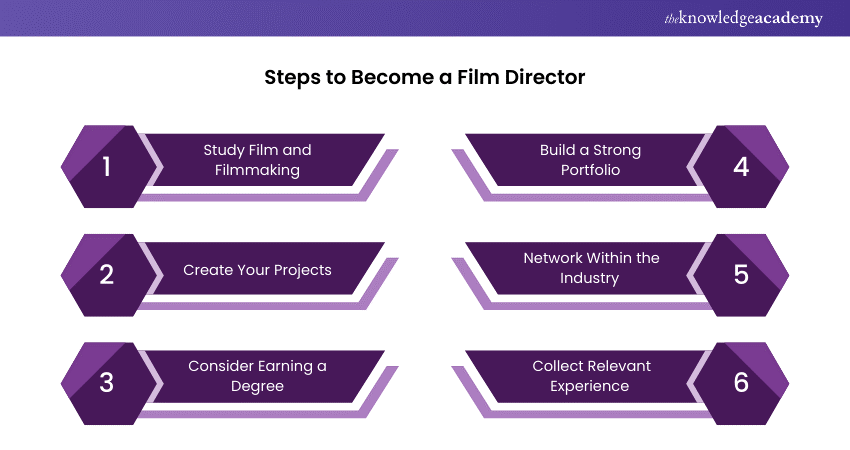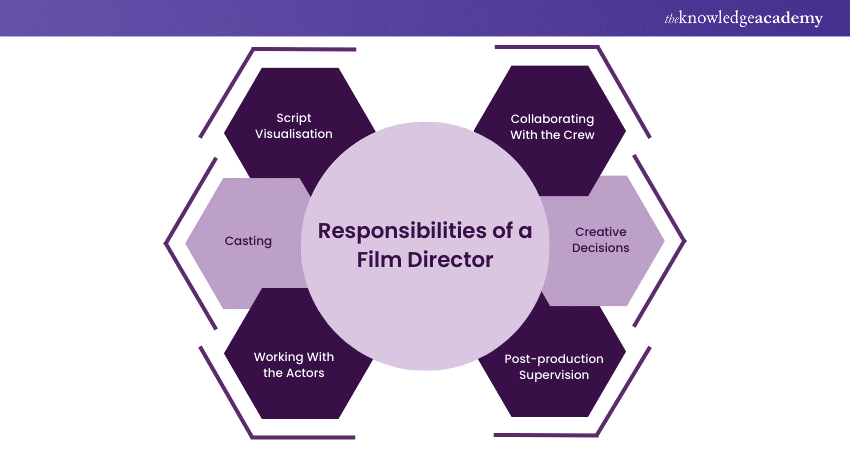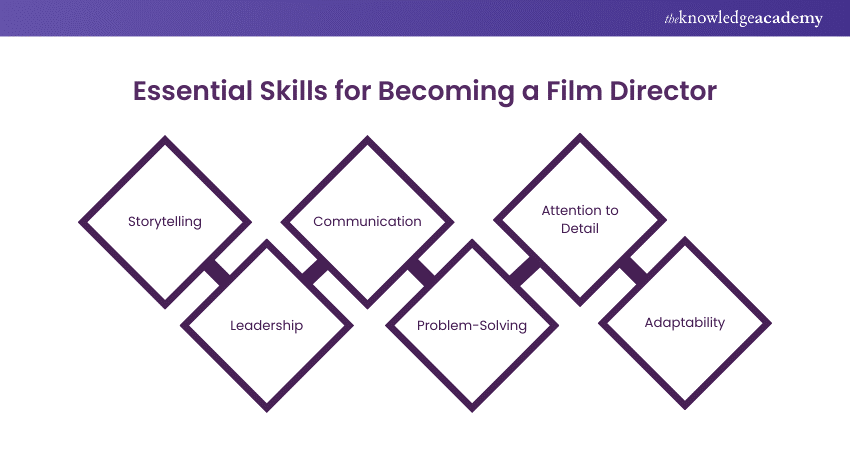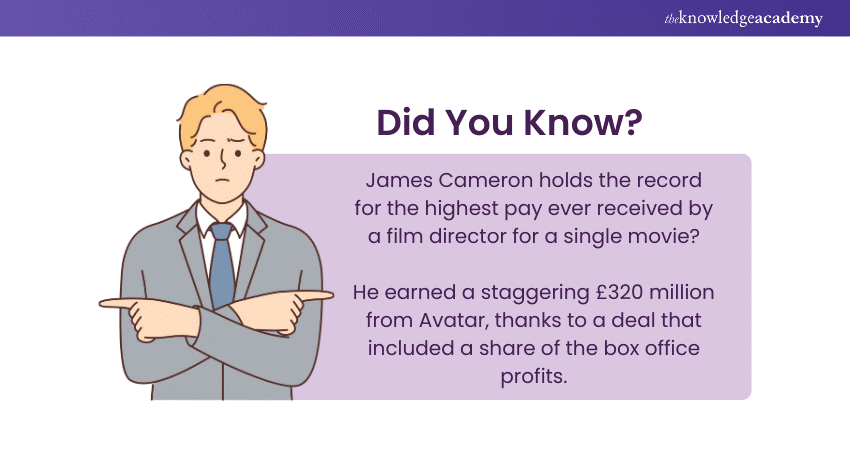We may not have the course you’re looking for. If you enquire or give us a call on +358 942454206 and speak to our training experts, we may still be able to help with your training requirements.
Training Outcomes Within Your Budget!
We ensure quality, budget-alignment, and timely delivery by our expert instructors.

Becoming a Film Director is a journey into the heart of storytelling. It’s about more than just pointing a camera—it’s about crafting a vision, shaping characters, and creating a world that captivates audiences. If you’ve ever wondered How to Become a Film Director, this blog will provide you with the essential steps and insights to help you get started on your journey.
Learning How to Become a Film Director involves not only understanding the technical side of filmmaking but also developing your creative voice. From experimenting with small projects to working with a variety of crews, every experience helps build your confidence and expertise. In this blog, we’ll walk you through the educational paths, essential skills, and practical tips that are crucial for establishing yourself in the film industry.
Table of Contents
1) Who is a Film Director?
2) Steps to Become a Film Director
3) Responsibilities of a Film Director
4) Essential Skills for Becoming a Film Director
5) What is the Average Salary of a Film Director?
6) Conclusion
What is a Film Director?
A Film Director is the creative visionary behind a movie, responsible for translating a script into a visual and emotional experience. Directors guide the entire filmmaking process, from pre-production planning to post-production editing, making crucial decisions about the artistic and dramatic aspects of a film.
They work closely with actors, cinematographers, and editors to ensure the film meets their vision. More than just managing technicalities, a director must also breathe life into characters, shape the story’s tone, and engage the audience on an emotional level.
Steps to Become a Film Director
Film direction combines the artistic capability of creating imagination and technically intensifying the outcome. Here is how you can start your journey in becoming a Film Director or even directing your own films.

1) Study Film and Filmmaking
First you need to get educated about the craft of filmmaking. While a formal education in film may not be relevant for all successful directors, a good knowledge of camera and editing tricks, sound, and lighting will set them apart. The film schools enable understanding of many essential aspects of the industry from scriptwriting and post-production.
You can learn about the history of cinema, watch iconic films, and analyse the styles of directors for a solid foundation. Even without attending a formal course, independent learning—be it online courses or reading books on filmmaking—will give you an idea of what it takes to make a movie successful.
2) Create Your Projects
There is no way you'll learn how to be a good director unless you start directing. You can start making your own short films, documentaries, or simple video projects. It's completely fine at this stage to use either a cell phone or low-grade consumer camera because most of the aspiring directors begin there.
Creating your projects allows you to try out different genres, style your narrative voice, and develop your skills in envisioning and getting your ideas across to a team. You will learn about resource management, creative problem-solving, and working with others. All these are skills that you will be needing to be a director.
3) Consider Earning a Degree
Taking a degree in film studies or related studies would give one an even more structured learning experience. A degree would also give you access to professional-grade equipment, industry-standard software, and collaborative projects with other film students.
Under the guidance of professors with several years of experience in the industry, you will be well-connected to the inner workings of the film industry. Some even study wider subjects like drama or media production, even literature, all of which may help improve storytelling skills.
4) Build a Strong Portfolio
Your portfolio will be your calling card in the film industry, and it is something that aspiring directors should have. It is a collection of works to show not just their ability but also their skill and creativity. They can be short films, music videos, or commercials-anything, basically any kind of video you directed.
It's a diverse portfolio that shows you do different kinds of projects and that you're a great all-around director. You can also upload your work to places like YouTube or Vimeo, where you could gather an audience and garner comments from others.
5) Network Within the Industry
The film industry thrives on relationships. Networking is one of the most powerful tools in your filmmaking toolkit. Screen your work at some film festivals and attend industry events and film premieres to begin meeting other directors, producers, and crew members. You can also network online with like-minded filmmakers on social media sites such as LinkedIn or Stage 32.
These sites are designed specifically for filmmakers and their work. Network within these sites, and you may find opportunities to collaborate on bigger projects, jobs, or even people who are equally passionate as you when it comes to film. These industry connections will be essential in providing you with access to opportunities for your future directorial projects.
6) Collect Relevant Experience
One should experience the different areas of filmmaking to become a good director. Most filmmakers have served in almost all the departments of filmmaking before directing, editing, cinematography, or production. In very large productions, they may even work as assistant directors or production assistants.
This experience can broaden your understanding and the flow of things that are in a film set, how to communicate well with different departments, and how to handle challenges arising during the production stage. The more experience a person has, the more he or she can lead his or her own projects, ensuring success.
Lights, camera, action! Gain the expertise you need to direct stunning films with our Filmmaking Course- Register today
Responsibilities of a Film Director
A director holds an enormous mandate that is defined by the scale and scope of the project. However, below are some of the core responsibilities that must be undertaken by a director.

1) Script Visualisation: A director is tasked with the role of translating the script to a story through images. They usually determine the mode, tone, and pacing that the film is intended to cover.
2) Casting: The director will often have a significant say on casting and ensure that the actor or actors can be able to bring the character to life effectively.
3) Working With the Actors: A director would instruct the actors on how to develop their characters, and the performances should meet the director's conceptions.
4) Collaborating With the Crew: In effect, a director would collaborate with the cinematographer, editor, sound designer, and production teams so that the technical aspect of filmmaking would be adapted.
5) Creative Decisions: From camera angles to a colour scheme of a movie, countless decisions must be made.
6) Post-production Supervision: The director shall oversee the editing, sound mixing, and final cut to ensure that the final product does not deviate from the film's original vision.
Essential Skills for Becoming a Film Director
Directing a film requires a unique blend of creativity, leadership, and technical know-how. Some essential skills include:

1) Storytelling: At its core, directing is about telling a story. A good director knows how to craft a compelling narrative and convey emotions through visuals.
2) Leadership: Directors must lead a team of actors, crew members, and other professionals. Strong leadership skills help maintain cohesion on set and ensure that everyone works towards a common goal.
3) Communication: Clear communication is essential to communicate the vision across the entire team. One needs to ensure making his ideas clear and motivating the team to work along with those ideas in a project.
4) Problem-Solving: Unforeseen technical problems and creative difference are rife on film sets. One must think on one's feet and come up with solutions quickly.
5) Attention to Detail: Every frame of a film is so significant; thus, it's crucial for a director to have a keen eye for detail to make sure that every shot contributes to the overall story.
6) Adaptability: Adaptation to those unexpected circumstances and the flexibility are most necessary. Directing requires a big amount of changes in planning due to changes caused by weather, budget, and other unforeseen problems that may arise on set.
What is the Average Salary of a Film Director?

A Film Director's salary varies significantly based on factors such as experience, location, and the scale of projects they work on. In the UK, the average salary for a Film Director can range from £27,000 to £54,000 per year, according to Glassdoor . However, directors working on high-budget projects, or those who have made a name for themselves, can earn much more.
There are, of course, fees in the millions, especially when working on blockbuster films or long-running television series, for well-known directors. Money such as this received by a director can often be much lower by working on independent films or small projects but still holds a great deal of potential for growth.
Level up your Music Production skills with our Music Production Course today and compose your own musical journey!
Conclusion
Becoming a Film Director is a journey of persistence, creativity, and continuous learning. It’s not a path with guaranteed success, but for those passionate about storytelling and the magic of cinema, the rewards can be immense. Start by learning the craft, creating your own projects, and building a network within the industry. With dedication, the right experience, and a bit of luck, you can learn How to Become a Film Director and bring your vision to the big screen.
Ready to turn your passion for photography into skill? Start our Photography Course today and snap your way to success!
Frequently Asked Questions

Yes, you can begin your journey to become a Film Director after high school. You can study in film studies or filmmaking, or any course related to it. Join any film institute or take online courses about directing, cinematography, or editing. These will help you build the most essential skills to become a good director.

There is no qualification, but a degree or diploma in film studies, media production, or filmmaking is good. Practical experience, a good portfolio, and skills such as storytelling, leadership, and collaboration must be very important to be a director.

The Knowledge Academy takes global learning to new heights, offering over 30,000 online courses across 490+ locations in 220 countries. This expansive reach ensures accessibility and convenience for learners worldwide.
Alongside our diverse Online Course Catalogue, encompassing 19 major categories, we go the extra mile by providing a plethora of free educational Online Resources like News updates, Blogs, videos, webinars, and interview questions. Tailoring learning experiences further, professionals can maximise value with customisable Course Bundles of TKA.

The Knowledge Academy’s Knowledge Pass, a prepaid voucher, adds another layer of flexibility, allowing course bookings over a 12-month period. Join us on a journey where education knows no bounds.

The Knowledge Academy offers various Personal Development Courses, including the Motivation And Goal Setting Training, Time Management Training, and Stress Management Course. These courses cater to different skill levels, providing comprehensive insights into Filmmaking Process.
Our Business Skills Blogs cover a range of topics related to Personal Development, offering valuable resources, best practices, and industry insights. Whether you are a beginner or looking to advance your Business skills, The Knowledge Academy's diverse courses and informative blogs have got you covered.
Upcoming Business Skills Resources Batches & Dates
Date
 Filmmaking Course
Filmmaking Course
Fri 13th Dec 2024
Fri 7th Feb 2025
Fri 4th Apr 2025
Fri 6th Jun 2025
Fri 8th Aug 2025
Fri 3rd Oct 2025
Fri 5th Dec 2025







 Top Rated Course
Top Rated Course



 If you wish to make any changes to your course, please
If you wish to make any changes to your course, please


